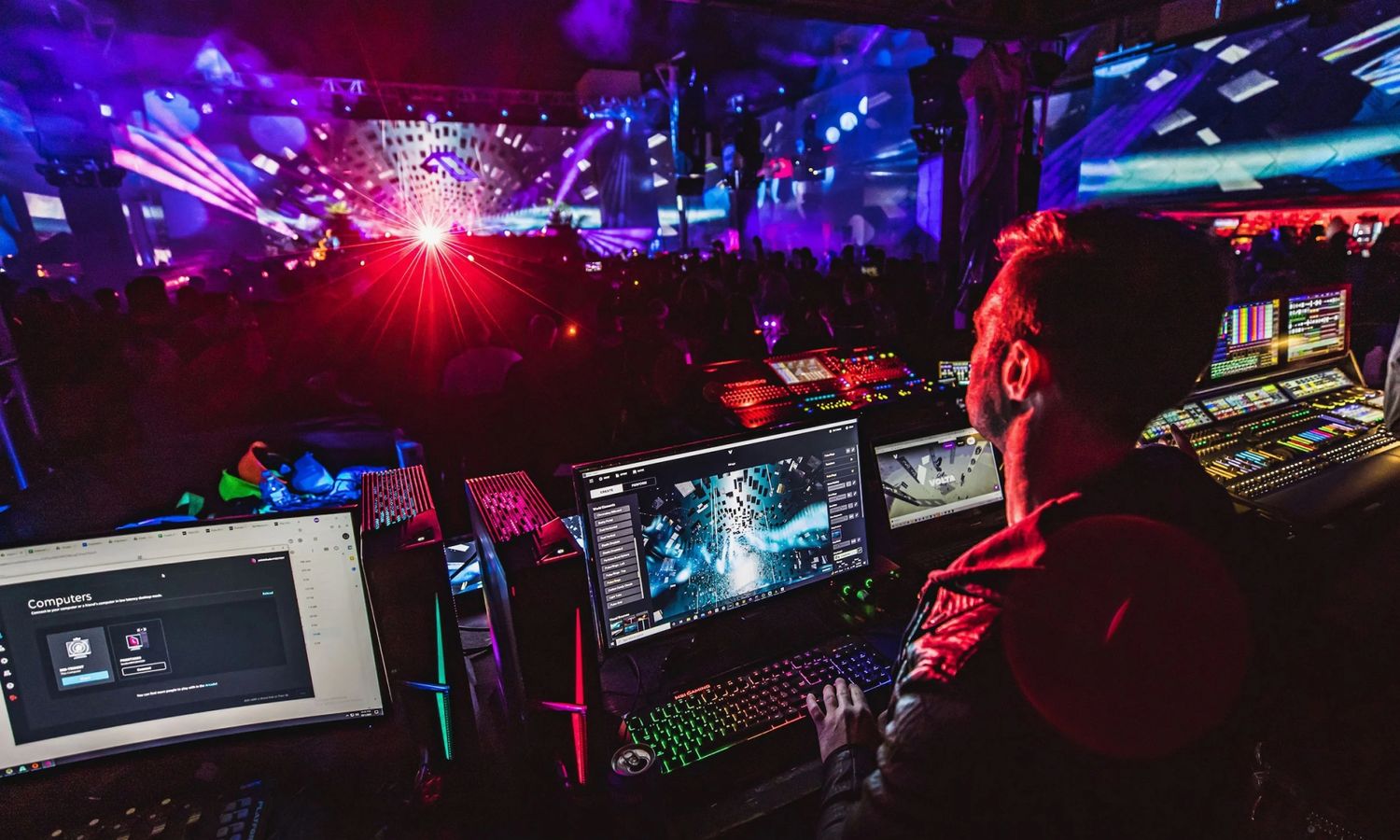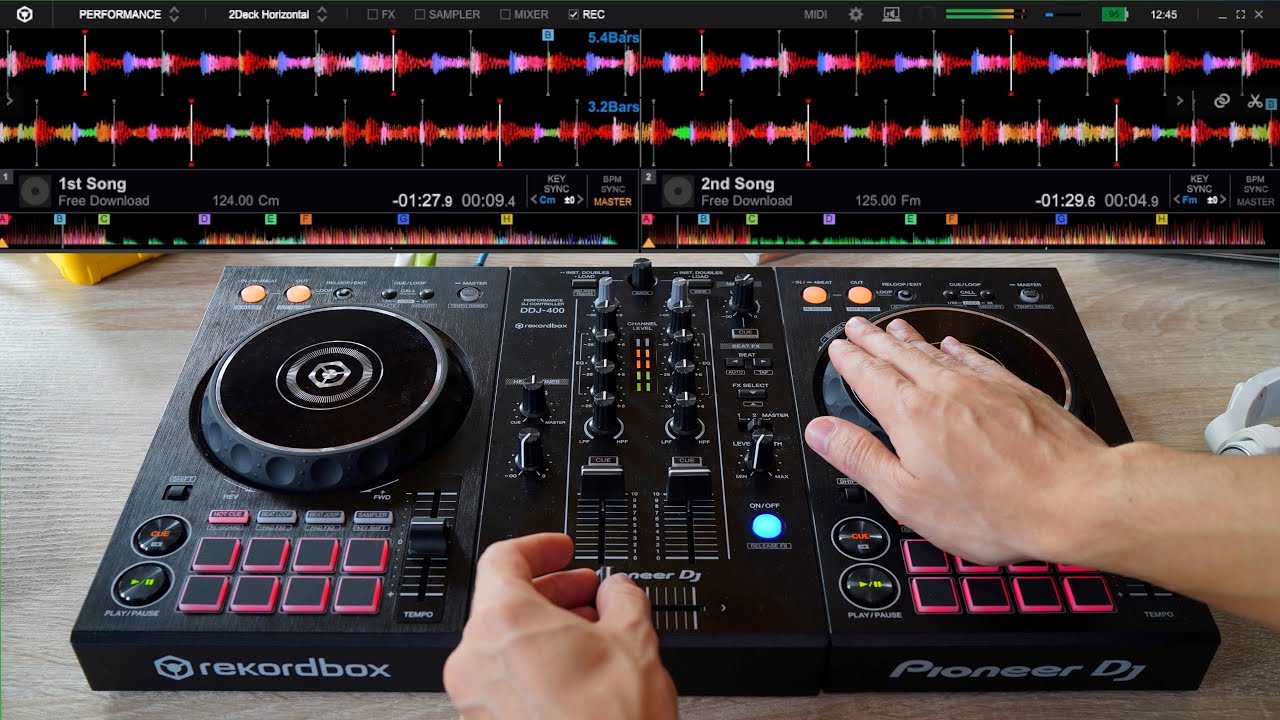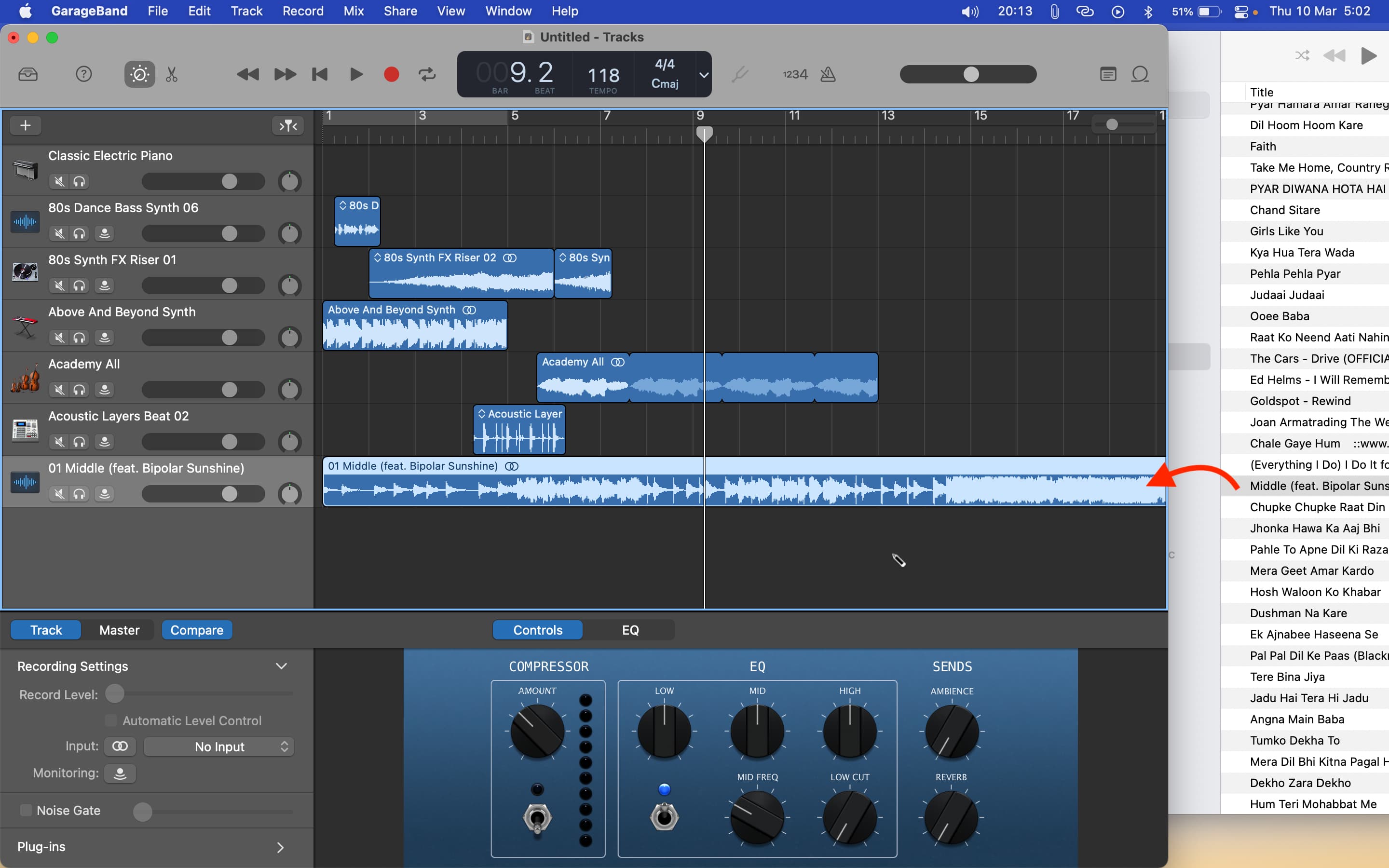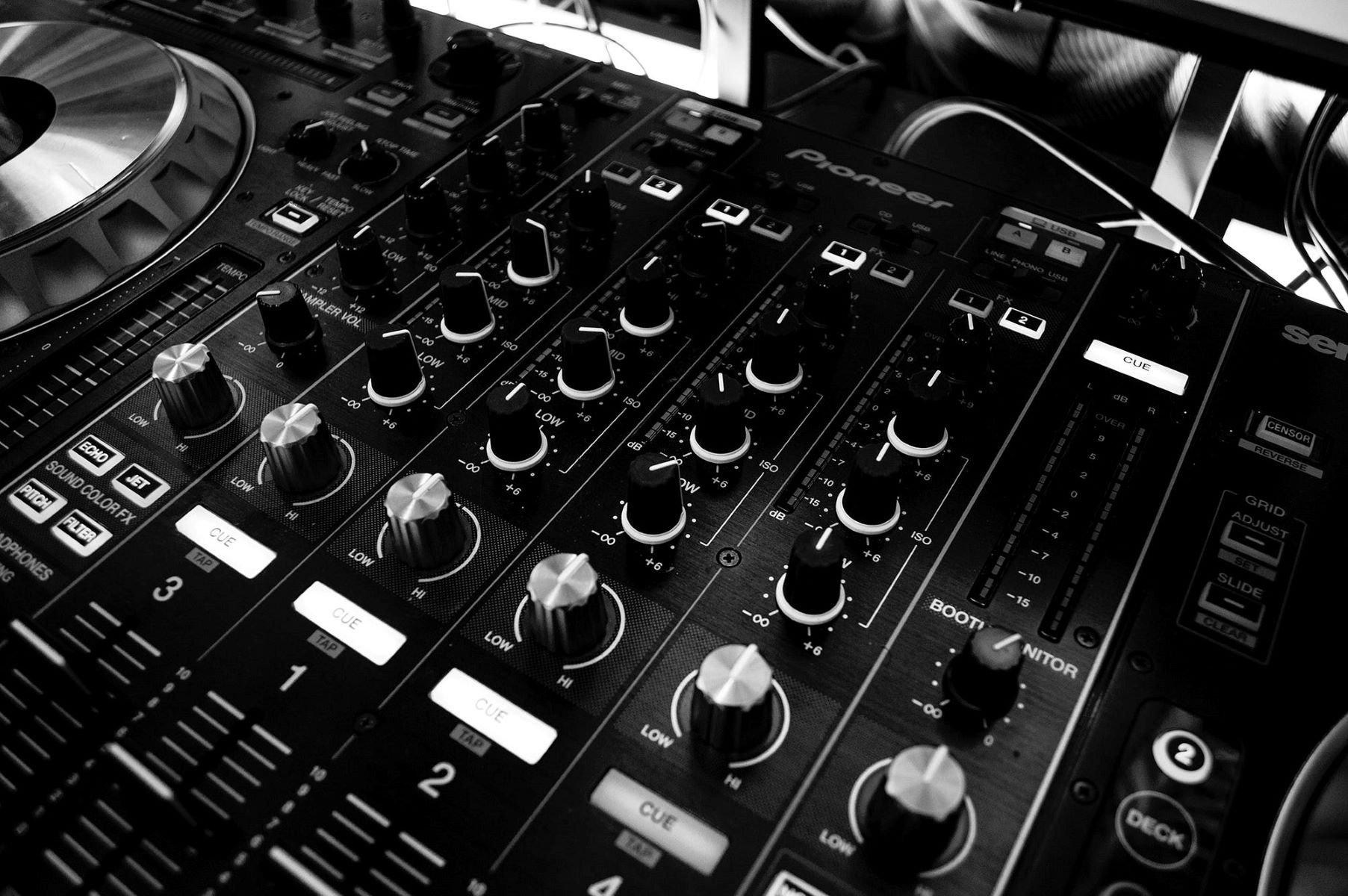Home>Production & Technology>DJ>How To Make Money As A DJ?


DJ
How To Make Money As A DJ?
Published: March 3, 2024
Learn how to make money as a DJ and turn your passion into a profitable career. Discover the top strategies and tips for success in the competitive DJ industry.
(Many of the links in this article redirect to a specific reviewed product. Your purchase of these products through affiliate links helps to generate commission for AudioLover.com, at no extra cost. Learn more)
Table of Contents
Introduction
Becoming a successful DJ involves more than just spinning records and creating seamless mixes. It's about building a brand, marketing yourself effectively, finding gigs, and creating multiple revenue streams. As a DJ, you have the opportunity to turn your passion for music into a profitable career. In this article, we will explore the various strategies and techniques that can help you make money as a DJ.
Whether you're a seasoned DJ looking to expand your business or a newcomer to the industry, understanding the key elements of success is crucial. From branding and marketing to networking and financial management, there are numerous aspects to consider when embarking on a career as a DJ. By delving into these areas, you can position yourself for success and create a sustainable income from your passion for music.
In the following sections, we will delve into the intricacies of building your brand as a DJ, effectively marketing yourself and your services, finding lucrative gigs and events, creating additional revenue streams, networking and collaborating with other DJs, and managing your finances and taxes. Each of these components plays a pivotal role in establishing yourself as a successful DJ and maximizing your earning potential.
By the end of this article, you will have gained valuable insights into the multifaceted world of DJing and discovered actionable strategies to elevate your career and financial prospects. Whether you aspire to perform at renowned venues, produce original music, or offer DJ services for private events, this comprehensive guide will equip you with the knowledge and tools necessary to thrive in the competitive yet rewarding industry of DJing.
Building Your Brand as a DJ
Building a strong and recognizable brand is essential for DJs looking to establish a lasting presence in the industry. Your brand encompasses not only your music and performance style but also your image, values, and the overall experience you provide to your audience. Here are some key strategies to consider when building your brand as a DJ:
-
Define Your Unique Style: Every successful DJ has a distinct style that sets them apart. Whether it's a specific genre, a signature sound, or a unique approach to mixing and blending tracks, defining your style is crucial. Consider what sets you apart from other DJs and how you can leverage your individuality to create a compelling brand identity.
-
Create a Compelling Visual Identity: In addition to your music, your visual identity plays a significant role in shaping your brand. This includes your logo, artwork, promotional materials, and even your personal appearance. Consistency in visual elements across your online presence, including social media profiles and website, is key to building a cohesive and memorable brand.
-
Engage with Your Audience: Building a brand is not just about the music; it's also about the connections you make with your audience. Engage with your fans on social media, respond to their messages, and create opportunities for them to interact with you. Building a loyal fan base is essential for sustaining your brand and increasing your earning potential.
-
Professionalism and Reliability: As a DJ, your brand is also reflected in your professionalism and reliability. Show up on time for gigs, communicate clearly with event organizers, and deliver exceptional performances consistently. Your reputation for reliability and professionalism will contribute to the strength of your brand.
-
Collaborate and Network: Collaborating with other artists and industry professionals can help expand your reach and strengthen your brand. By working with other DJs, producers, and event organizers, you can tap into new audiences and opportunities, further solidifying your brand in the music industry.
By focusing on these aspects, you can develop a compelling and distinctive brand that resonates with your audience and sets the stage for a successful DJ career.
Remember, building a brand is an ongoing process that requires dedication, creativity, and adaptability. As you continue to evolve as a DJ, your brand should evolve with you, reflecting your growth and expanding your influence in the music industry.
Marketing Yourself and Your Services
Marketing yourself effectively is crucial for attracting clients and securing gigs as a DJ. In today's digital age, having a strong online presence is essential for reaching a wider audience and showcasing your skills and services. Here are some key strategies to consider when marketing yourself as a DJ:
-
Create a Professional Website: Your website serves as the online hub for your DJ brand. It should feature high-quality photos, videos of your performances, a detailed bio, upcoming event schedule, and contact information. Additionally, consider maintaining a blog to share insights into your music, performances, and industry experiences.
-
Utilize Social Media: Platforms like Instagram, Facebook, Twitter, and YouTube offer powerful tools for promoting your DJ services. Regularly post engaging content such as live performance snippets, behind-the-scenes footage, and updates about upcoming events. Engage with your followers, respond to comments, and use relevant hashtags to increase your visibility.
-
Produce a Professional Press Kit: A well-crafted press kit is essential for showcasing your DJ services to potential clients and event organizers. Include a professional bio, high-resolution photos, testimonials from previous clients, and any press coverage or notable achievements. A press kit provides a comprehensive overview of your skills and experience, making it easier for prospective clients to understand what you have to offer.
-
Network with Event Organizers and Industry Professionals: Building strong relationships within the music and event industry can open doors to new opportunities. Attend industry events, music conferences, and networking mixers to connect with event organizers, venue managers, and other DJs. Personal connections often play a significant role in securing gigs and expanding your client base.
-
Offer Value-Added Services: In addition to your DJ performances, consider offering value-added services such as event planning, sound system rental, or music production. By diversifying your offerings, you can appeal to a broader range of clients and increase your revenue streams.
-
Collect Client Testimonials and Referrals: Positive reviews and testimonials from satisfied clients can significantly enhance your credibility and attract new business. Always request feedback from clients after events and ask for permission to use their testimonials on your website and promotional materials. Additionally, consider implementing a referral program to incentivize clients to recommend your services to others.
By implementing these marketing strategies, you can effectively position yourself in the competitive DJ market and attract a steady stream of clients and opportunities. Remember that consistency and authenticity are key; by staying true to your brand and consistently delivering exceptional performances, you can build a strong reputation and establish yourself as a sought-after DJ in your industry.
Finding Gigs and Events
Securing gigs and events is a critical aspect of a DJ's career, providing opportunities to showcase skills, build a fan base, and generate income. Here's a detailed look at effective strategies for finding gigs and events as a DJ:
1. Establish an Online Presence
Maintaining a strong online presence is essential for attracting event organizers and potential clients. Utilize social media platforms, professional websites, and online DJ directories to showcase your work, engage with followers, and attract the attention of event planners and promoters.
2. Networking and Relationship Building
Networking within the music and event industry is invaluable for securing gigs. Attend industry events, music festivals, and local club nights to connect with event organizers, venue managers, and fellow DJs. Building genuine relationships can lead to direct bookings and referrals for future gigs.
3. Collaborate with Event Organizers and Promoters
Collaborating with event organizers and promoters can open doors to new opportunities. Offer to provide mixtapes, promotional support, or assistance with event planning to showcase your dedication and value. By establishing mutually beneficial relationships, you can position yourself as a reliable and valuable asset for future events.
4. Approach Venues and Event Agencies
Reach out to local venues, clubs, and event agencies to inquire about potential DJ opportunities. Prepare a professional press kit highlighting your experience, testimonials, and promotional materials to present a compelling case for why you should be considered for upcoming events. Persistence and professionalism can often lead to fruitful collaborations.
5. Leverage Online Platforms and Directories
Utilize online platforms and directories specifically designed for connecting DJs with event organizers and promoters. These platforms often feature gig listings, event postings, and opportunities to apply for DJ slots. By actively engaging with these platforms, you can access a wide range of potential gigs and events.
6. Showcase Your Skills at Open Decks and DJ Competitions
Participating in open decks events and DJ competitions provides a platform to showcase your skills and gain exposure. Winning or placing in competitions can significantly elevate your profile and attract attention from event organizers seeking talented DJs for their events.
By implementing these strategies and maintaining a proactive approach to finding gigs and events, DJs can increase their visibility, secure regular bookings, and build a thriving career in the dynamic world of music and entertainment.
Creating Additional Revenue Streams
Diversifying revenue streams is a savvy approach for DJs looking to bolster their income and create financial stability. While live performances and DJ gigs are primary sources of revenue, exploring additional avenues can provide supplementary income and expand your professional opportunities. Here are several strategies for creating additional revenue streams as a DJ:
-
Music Production and Remixing: Utilize your skills to produce original tracks and remixes. By releasing music on digital platforms and collaborating with other artists, you can generate revenue through streaming, downloads, and royalties. Additionally, offering remixing services to other musicians and producers can be a lucrative endeavor.
-
Teaching and Workshops: Share your expertise by offering DJing workshops, private lessons, or online tutorials. Whether catering to aspiring DJs or individuals seeking to improve their skills, providing educational services can be a rewarding way to earn extra income while contributing to the growth of the DJ community.
-
Event Hosting and Curation: Curate and host your own events, club nights, or themed parties. By leveraging your network and promotional skills, you can create unique experiences for audiences while earning revenue from ticket sales, sponsorships, and partnerships with venues.
-
Sound and Lighting Services: Expand your offerings to include sound system rental, lighting design, and event production services. Many events require professional audiovisual setups, and by providing these services, you can capitalize on a niche market within the entertainment industry.
-
Merchandise and Brand Collaborations: Develop branded merchandise such as apparel, accessories, or music releases. Additionally, collaborating with brands and sponsors for endorsements, product placements, or branded events can lead to additional revenue streams and heightened brand visibility.
-
Digital Content Creation: Monetize your online presence by creating premium content such as exclusive mixes, behind-the-scenes access, or personalized shoutouts for fans. Platforms offering subscription-based content can serve as a channel for generating recurring revenue from dedicated supporters.
-
Music Curation and Consulting: Offer music curation services for businesses, events, or digital platforms. Additionally, provide consulting services to venues, brands, or event organizers seeking expert advice on music programming and entertainment strategies.
By exploring these diverse revenue streams, DJs can cultivate a multifaceted career while enhancing their financial prospects. Each additional stream not only contributes to income diversification but also presents opportunities for professional growth and creative expression. Embracing a proactive and entrepreneurial mindset can lead to a sustainable and thriving career in the dynamic realm of DJing.
Networking and Collaborating with Other DJs
Networking and collaborating with fellow DJs are pivotal components of a thriving career in the music industry. By establishing meaningful connections and fostering collaborative relationships, DJs can unlock a myriad of opportunities for professional growth, exposure, and creative enrichment.
Building a Supportive Network
Networking with other DJs creates a supportive ecosystem where knowledge, experiences, and opportunities can be shared. Engaging with peers in the industry allows for the exchange of insights, techniques, and industry trends, fostering continuous learning and skill development. Whether through industry events, social gatherings, or online communities, connecting with other DJs provides a platform for mutual support and camaraderie.
Collaborative Performances and Events
Collaborating with other DJs for performances and events can enhance the overall experience for both artists and audiences. Joint performances, back-to-back sets, or collaborative showcases not only infuse diversity and dynamism into events but also enable DJs to tap into each other's fan bases and reach new audiences. Furthermore, collaborative events can lead to cross-promotional opportunities, expanding the reach and visibility of all participating artists.
Knowledge Sharing and Skill Development
Interacting with other DJs facilitates the sharing of technical expertise, creative approaches, and industry best practices. Through collaborative sessions, workshops, or informal discussions, DJs can exchange valuable insights, refine their skills, and explore new techniques. This collaborative environment fosters a culture of continuous improvement and innovation within the DJ community.
Creative Collaborations and Projects
Collaborating with other DJs on creative projects such as mixtapes, remixes, or original productions can yield compelling and innovative results. By leveraging diverse musical influences and styles, collaborative projects often lead to the creation of unique and captivating content. Additionally, joint ventures in music production, event curation, or content creation can open doors to new revenue streams and artistic endeavors.
Industry Advocacy and Collective Empowerment
Uniting with other DJs enables collective advocacy for industry-related issues, professional standards, and artistic integrity. By joining forces, DJs can advocate for fair compensation, ethical practices, and the promotion of diverse talent within the industry. This collaborative advocacy fosters a sense of empowerment and solidarity, contributing to the overall advancement and sustainability of the DJ profession.
In essence, networking and collaborating with other DJs not only enriches the individual journey of each artist but also strengthens the collective fabric of the DJ community. By fostering a culture of collaboration, support, and mutual empowerment, DJs can collectively elevate the standards, creativity, and impact of their craft, paving the way for a vibrant and inclusive music industry.
Managing Your Finances and Taxes as a DJ
Managing finances and understanding tax obligations are crucial aspects of running a successful DJ business. As a DJ, it's essential to maintain a clear and organized approach to financial management to ensure long-term sustainability and compliance with tax laws. Here's a comprehensive overview of key considerations for managing finances and taxes as a DJ:
1. Budgeting and Expense Tracking
Establishing a detailed budget is fundamental for managing income and expenses effectively. Keep track of all business-related costs, including equipment purchases, maintenance, marketing expenses, travel, and professional development. Implementing a robust expense tracking system, whether through accounting software or spreadsheets, enables you to monitor cash flow and make informed financial decisions.
2. Income Diversification and Revenue Forecasting
While DJ performances may constitute the primary income source, diversifying revenue streams can provide stability and resilience. Forecasting income from various sources, such as music production, teaching, and event hosting, facilitates proactive financial planning. Understanding the seasonality and fluctuations in income streams allows for prudent budgeting and risk mitigation.
3. Tax Compliance and Record-Keeping
Compliance with tax regulations is paramount for DJs operating as independent contractors or business owners. Maintain meticulous records of income, expenses, contracts, and receipts to substantiate tax filings. Familiarize yourself with tax deductions applicable to the music industry, such as equipment depreciation, travel expenses, and home office deductions, to optimize tax efficiency.
4. Retirement and Savings Planning
Planning for retirement and building a financial safety net is often overlooked in the music industry. Establishing a retirement savings plan, such as a self-employed 401(k) or Individual Retirement Account (IRA), allows DJs to secure their financial future. Additionally, maintaining an emergency fund to cover unforeseen expenses or periods of low income is prudent for financial resilience.
5. Professional Financial Guidance
Seeking guidance from financial professionals, such as accountants or financial advisors with expertise in the music industry, can provide valuable insights and tailored strategies. Collaborating with professionals can optimize tax planning, maximize deductions, and ensure compliance with evolving tax laws and financial regulations.
6. Business Entity Structure and Legal Considerations
Choosing the appropriate business entity structure, such as a sole proprietorship, LLC, or corporation, can have significant implications for tax liabilities and legal protections. Understanding the legal and tax implications of each business structure is essential for making informed decisions about business formation and risk management.
By proactively managing finances, adhering to tax obligations, and seeking professional guidance, DJs can cultivate financial stability and position themselves for long-term success in the dynamic and rewarding realm of the music industry.
Conclusion
In conclusion, the journey to making money as a DJ encompasses a multifaceted approach that extends beyond the art of mixing tracks. By delving into the intricacies of building a brand, marketing, securing gigs, creating diverse revenue streams, networking with peers, and managing finances, DJs can chart a path towards financial success and professional fulfillment.
Building a brand as a DJ involves defining a unique style, creating a compelling visual identity, and engaging with the audience to foster a loyal fan base. This brand serves as the cornerstone for attracting clients and establishing a distinctive presence in the competitive music industry.
Effective marketing strategies, including professional websites, social media engagement, and comprehensive press kits, play a pivotal role in showcasing DJ services and attracting a steady stream of clients and opportunities.
Securing gigs and events requires a proactive approach, leveraging online platforms, networking, and collaborative opportunities to expand visibility and access a diverse range of performance opportunities.
Diversifying revenue streams through music production, teaching, event hosting, and merchandise sales can provide supplementary income and enhance the overall financial resilience of a DJ business.
Networking and collaborating with fellow DJs not only enriches individual journeys but also strengthens the collective fabric of the DJ community, fostering a culture of support, creativity, and advocacy.
Managing finances and understanding tax obligations are essential for long-term sustainability, requiring meticulous record-keeping, proactive tax planning, and seeking professional financial guidance to optimize financial strategies.
In essence, the path to making money as a DJ is a dynamic and multifaceted journey that demands creativity, resilience, and strategic acumen. By embracing these comprehensive strategies and navigating the evolving landscape of the music industry, DJs can position themselves for enduring success, financial stability, and a fulfilling career driven by their passion for music.











